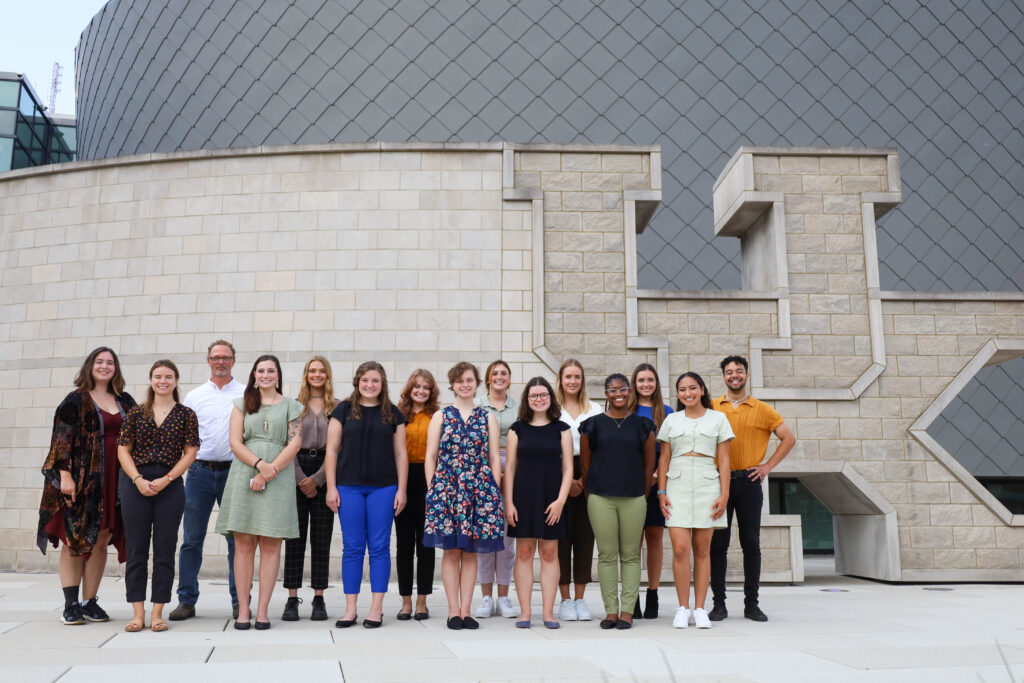
Amber Dotson – UK Office of Sustainability Intern 2021-2022
Amber Dotson is a graduate of the University of Kentucky Martin-Gatton College of Agriculture, Food and Environment where she studied Agricultural and Medical Biotechnology and Agriculture Economics. During her time at UK, Amber poured herself into exploring all aspects of agriculture through internships and work experiences with the Natural Resources Conservation Service division of the United States Department of Agriculture, Neogen Corporation, UK Sustainability, and the Office of Undergraduate Research. Upon graduation, she accepted a position with Neogen Corporation as a Quality Control Technician, focusing on microbiological testing of food safety products. The cumulation of her experiences have shaped her into a scientist, advocate, comfortable communicator, and young professional with passions for agriculture and education.
During my time with the Sustainability Internship Program, I worked in communications with the Office of Sustainability. My role involved managing the office’s social media, designing print and digital graphics, photographing events, and providing additional programmatic support where needed. I spent much of my time finding aesthetically pleasing ways to communicate sustainability effectively to students, faculty, staff, and community members. I particularly enjoyed using communication and graphic design to celebrate others through social media campaigns, highlight posts, and personalized posters.
After graduation, I began working with Neogen Corporation where I had previously interned. My internship started in marketing, but I made the switch to working in a microbiology laboratory as a Quality Control Technician after accepting my first full time role. In this position, I spend my time running microbiological tests on finished products for use in food production facilities. These products include sponges, swabs, and various media that will eventually be used to ensure that the foods we eat are safe and free of microbiological contaminants, like E. coli and Salmonella.
The nature of my position means that waste is often unavoidable. We must use products to test them, and, after our use, the products must be disposed of. In the case of failing test results, entire lots containing hundreds of boxes of product may need to be scrapped. In an effort to be more ecologically sound, invalid tests are repeated to ensure correctness, viable product is salvaged from lots with nonconformities, and many Neogen laboratories operate under sustainable laboratory guidelines.
On the surface, it can be difficult to see how my current job has any direct ties to sustainability. Admittedly, the connections are not obvious, but the skills and knowledge I gained as a member of the Sustainability Internship Program have contributed greatly to my understanding that opportunities to make sustainable impacts can be found in all places.
Despite not working directly with sustainability, I have found ways to incorporate and encourage sustainable practices in my career and everyday life. I am so grateful for the Sustainability Internship Program providing me with the knowledge to better myself and those around me.

